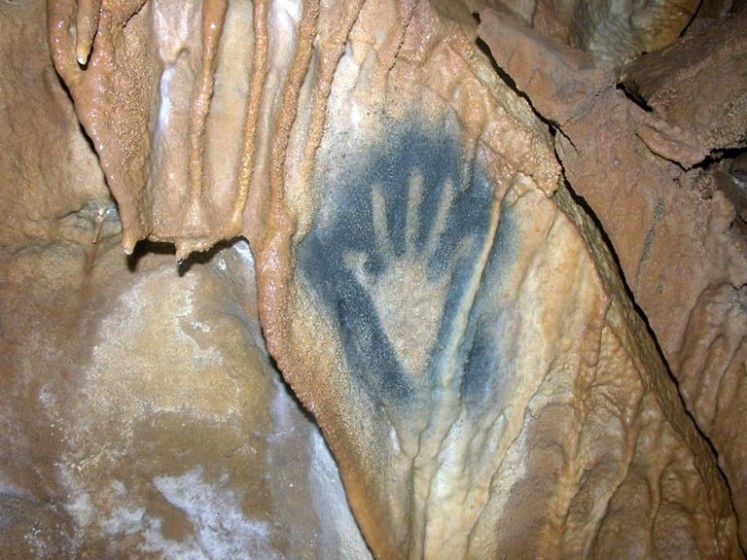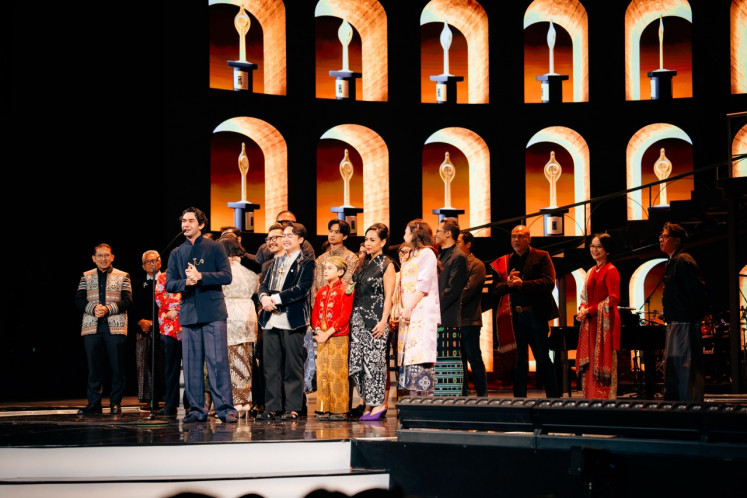Popular Reads
Top Results
Can't find what you're looking for?
View all search resultsPopular Reads
Top Results
Can't find what you're looking for?
View all search resultsEssay: Original sin
Recently, people from around the world are turning to blind literalism for interpreting religions. We are haunted by a way of thinking fueled by religious fundamentalism and conservatism.
Change text size
Gift Premium Articles
to Anyone
G
od understands what will happen on the day you eat fruit from that tree. You will see what you have done and you will know the difference between right and wrong, just as God does. (Genesis 3:4)
The story of the original sin in the Book of Genesis, the Bible’s Old Testament, is perhaps one of the most famous stories of all time. It is a mythic tale that seeks to explain the origin of man’s existence on Earth, suffering and death.
Adam and Eve were cast out of paradise because they had eaten the fruit from the forbidden tree of knowledge. Because of their sin, humanity is condemned to die — the men are forced to toil hard to earn their living and women have to carry and deliver their children in tremendous pain.
Herein lays the sexism of the scripture, as it proposes a gender-based work division, while portraying Eve as the weakling who has caused the downfall of man from paradise.
Female Gnostic Christian scholar Elaine Pagels has chosen to interpret the scripture differently. Gnosticism itself is a modern name for a variety of ancient religious ideas and systems originating in Jewish milieus in the first and second centuries AD. The etymology of the word Gnosticism is the ancient Greek word gnostikos (having knowledge).
Therefore, the Gnostic Christians interpret Eve’s actions as being heroic, as it is imperative for her to eat from the tree of knowledge to free humans from the burden of ignorance, which then forces them to submit to a domineering and authoritative God.
The story resonated in my mind again after a discussion with a friend, a book editor from Kepustakaan Populer Gramedia (KPG) named Christina M. Udiani. We discussed how knowledge, although it is greatly liberating and provides human beings with the necessary agency to change their destinies, can also become a burden.
Recently, people from around the world are turning to blind literalism for interpreting religions. We are haunted by a way of thinking fueled by religious fundamentalism and conservatism. One of the most evident symptoms of this is seen among the proponents of the theory that the Earth is flat, turning the clock back more than 1,000 years to before when the spherical Earth theory was proposed around the 6th century.
There are many reasons that drive people into religious fanaticism or fundamentalism; political and economic reasons are just two. Here, I would like to focus on the existential element of this phenomenon.
Religious dogmas give us straight answers while knowledge provided by social and natural sciences have the potential to unsettle us. Human beings are presumably the only animals who are aware of their mortality. We also have the most evolved self-awareness.
Nobody wants bad things to happen to them. We would like to believe that this world is fair, a place where good things happen to good people.
Yet, reality shows us that our agency is actually limited by our environment; although we have free will and can do whatever we can to improve our lives, we are still haunted by the randomness of senseless incidents and tragedies. The more we learn about the natural and social sciences, the more we become aware of our vulnerabilities. We also learn more about the ugly truth of the human condition, how we are capable of committing unthinkable atrocities for power and pride.
I was left in a state of paranoia when I recounted how various types of illnesses can reach a stage where medical intervention does more harm than good during a two-year longitudinal public health advertorial project. I no longer have this illusion of immunity or invulnerability to various illnesses.
I think the writer of Genesis came up with an excellent metaphor outlining the consequences of having eaten the forbidden fruit and bearing the burden of knowledge. Perhaps the reason why God tries to prevent Adam and Eve from eating the fruit is, apart from the possibility that he is a power-crazed authoritarian, because he has the good intention of trying to keep man away from the ugly truth.
Assimilating knowledge is a very painful process. For instance, I have dedicated a few years reading and talking to different people on religion, politics and violence, as well as how these variables are intimately tied to the economy.
Recently, I went through 11 months of depression because I was completely at a loss with what I saw in terms of intolerance, radicalism and sectarianism. Hearing lots of stories from journalists and activists, I foresaw a dark future that I dared not picture in my mind.
Some senior journalists and activists I talked to also bore the consequence of knowing too much and hearing too much and being exposed too much to the world’s dark reality. They appear to be highly cynical and bitter, predicting that the end is near for all of us. Being a serious thinker and writer is not very good for mental health.
Seeing just how turbulent our world is today, no wonder so many people have become religious literalists. Thank goodness, although some of my friends have also surprised me by taking an extreme turn from being progressives and open-minded thinkers to becoming religious conservatives, I have not made that turn. Yet. Somehow I still manage to delve deeper, read more books and talk to more people to be a good writer and thinker, chronicling our socio-political issues, although the pictures I am getting seem to have become darker. I am so afraid of the future.
From my learning process and that of my friends, at least I can extract a number of lessons for those of you who want to become serious thinkers to alleviate the pain brought by the learning process.
First, do not be satisfied by partial knowledge. Find multidisciplinary references that can add to your understanding about a particular topic. Comprehensive knowledge could somehow help you to accept the human condition and reduce your anxiety.
That leads to the second lesson: Accept the world as it is. Do things that you can to change yourself and your circle of influence; aside from that, don’t waste your energy on things you can’t change.
The third lesson is: Tolerate the fact that it is impossible for you to know everything and forecast the future. Some things in our lives appear to be destined to remain as mysteries. We cannot predict the future and how this global turmoil is going to play itself out.
Whether we are going to push our civilization forward or end up in a third world war, the Earth is going to continue turning, as it always does.











